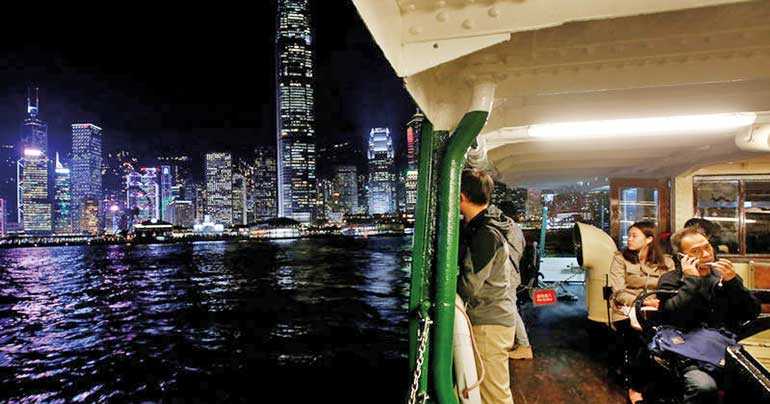Saturday Feb 21, 2026
Saturday Feb 21, 2026
Thursday, 1 August 2019 00:00 - - {{hitsCtrl.values.hits}}

Hong Kong (Reuters): Hong Kong’s economy grew less than expected in the second quarter as the US-China trade war escalated, and pressure looks set to intensify as mass anti-government protests rock the Asian financial centre.
The economy expanded 0.6% in April-June from a year earlier, preliminary government data showed on Wednesday, in line with the first quarter’s pace but much less than an average forecast of 1.6% from five economists.
On a quarterly basis, gross domestic product shrank 0.3% seasonally adjusted.
Slowing global trade and weaker investment were the main factors weighing on activity last quarter, the government said in a statement along with the data.
But a wave of protests that began in late April are beginning to take their toll on tourism, retailers and hotels after some protesters began clashing with police in recent weeks in scenes splashed in news reports worldwide.
“We expect growth in the city to remain weak,” Capital Economics said in a note to clients.
“The drag from the US-China trade war looks set to intensify.... And with the protests turning more violent and disruptive, there is a risk that they could have a bigger impact on activity in the coming quarters.”
A government spokesman said in a statement that economic sentiment had “deteriorated visibly” in the face of worries about the global economy, with private spending growing only modestly and investment falling further.
No quick fixes
No quick resolution is expected for either the US-China trade row or local political unrest.
While the port of Hong Kong has lost some business to new Chinese ports, and it is no longer has a large manufacturing base, the territory remains a key middleman in global trade with China.
Hong Kong’s total exports fell the most in nearly three and a half years in June, with both global weakness and China’s economic slowdown playing a part.
Domestic pressures are quickly building as well, as clashes between protesters and police in July threaten to scare away tourists from one of the world’s most vibrant shopping destinations.
Various strikes are planned in coming weeks, while disruptive civil disobedience actions are taking place almost daily and look set to continue.
Retailers say they expect sales for July and August to drop by double-digits from a year earlier, while hoteliers are bracing for a wave of cancellations.
The government is still forecasting GDP growth of 2-3% this year, versus 3% in 2018.
But some banks have downgraded their forecasts, with Standard Chartered lowering its view to 1.4% from 2.2%, and Bank of East Asia trimming its forecast to 1.5% from 2%.
Rallies that started three months ago to protest an extradition bill have plunged the former British colony into its biggest political crisis since its return to Chinese rule in 1997.